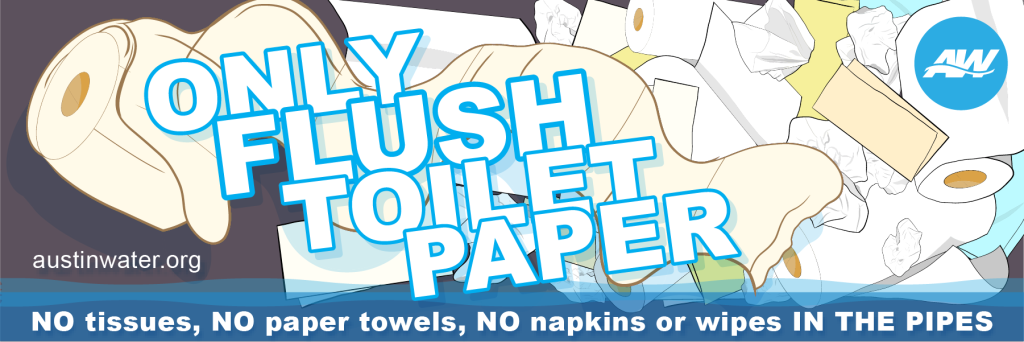
Programs
Descaling is a process that removes limescale, calcium, rust and etc. from equipment and piping to improve function and prevent equipment failure. Multi-unit chemical descale operators are permitted to complete work at temporary descale job sites. Temporary descale job sites under this program are connected to residential multi-unit properties. To conduct descaling or cleaning at an industrial or commercial facility, reference information on the Utility Piping Systems (UPS) program webpage.
The City of Austin and Lower Colorado River Authority (LCRA) have a Water Partnership to assess water use, implement water conservation strategies and ensure water quality for Austin and the surrounding area. The long-term plan is to ensure up to 250,000 acre-feet of additional water for Austin through 2100.
Commercial, multi-family, and city of Austin properties that are one-acre in size or larger must complete an irrigation system inspection every two years. An Austin Water Authorized Irrigation Inspector must perform the inspection.

The Dowser Dan School Assembly Program has delivered the important message of water conservation to elementary school students in the community for 30 years.
Our Industrial Waste Pretreatment Program ensures that local (Austin City Code Chapter 15-10, Wastewater Regulations), state and federal regulations are met regarding the quality of wastewater discharged into the City’s wastewater system.
Residential Irrigation Inspections
The Austin Water Conservation Division performs inspections on new residential irrigation systems to ensure compliance with State of Texas and City of Austin irrigation standards. Click here for more information.
Austin Water regulates all liquid waste haulers operating within the City of Austin's jurisdiction in accordance with City Code. The wastes regulated include sewage, water and wastewater treatment plant sludge, along with wastes from septic tanks, grease traps, grit traps and portable toilets. Austin Water also operates an approved receiving station for certain types of hauled liquid wastes.
A clean environment while serving food is good for your customers and your community. Waste water from your mobile food business must be disposed of properly to avoid clogging sewer lines or polluting the environment. Even on the go, there is much you can do to protect the environment and avoid fines.

Flushing anything other than human waste and toilet paper can result in sewage back-ups, expensive damages to your home plumbing system, and cause problems to the sewer and water treatment system. That's why it's important to treat toilets properly, and flush only your personal contributions to the water treatment plant.
For the most recent updates from City Council check out the GoPurple page.
Wastewater surcharges are charged to businesses that discharge wastewater exceeding “normal” wastewater standards. Business wastewater can be more heavily concentrated with solids and organic matter than residential wastewater, making it more expensive to treat.
Austin Water has constructed reclaimed water bulk water facilities at several locations within the Austin area to make reclaimed water available to customers with water hauling trucks. The goals behind the reclaimed water bulk water facilities are to conserve potable water when the use of water can be non-potable, to minimize the use of fire hydrants for non-potable needs, and to make reclaimed water available to interested parties who do not have direct access to a City reclaimed water main via a reclaimed water meter.
Conserving water has benefits beyond lowering your bill. Using less water requires less electricity for treatment services, reduces the need for expensive system expansions, and helps to ensure the availability of clean water for generations to come. As our population continues to grow, Austin Water remains committed to offering effective tools, programs, and rebates to help customers conserve one of our most precious resources – water.
Learn more about our efforts for water conservation in the City of Austin Water Conservation Plan:

Please join us for an Open House on August 21 to learn more about these projects and potential neighborhood impacts.
West Riverside and South First Reclaimed Water Projects Open House
South Austin Recreational Center, 1100 Cumberland Road
Thursday, August 21, 6:30 pm – 8:00 pm
AW Standard Product Lists (SPLs) specify acceptable manufacturer products for use in the construction of water, reclaimed water and wastewater facilities. These products have undergone stringent testing to ensure safety, reliability and consistency within the AW system. The Current AW SPLs are updated on a quarterly basis. For questions regarding previous (superseded) SPL versions email: AW-SPL@austintexas.gov
The Travis Heights Reclaimed Water Main project will add 4,500 linear feet to Austin Water's recycled water system. Also known as reclaimed water, recycled water is captured from drains at homes and businesses around the city, treated to a high quality at our facilities, and sent back to customers through special purple-painted pipes to be used for non-drinking purposes like irrigation, flushing toilets, and evaporative cooling.
Work to utility piping systems must be permitted by Austin Water to discharge into the sanitary sewer system, even if the building has a wastewater discharge permit.
Learn about Wastewater Averaging
Ever wonder how Austin Water calculates how much you are billed for wastewater? This helpful video explains wastewater averaging, how we calculate it and what you can do to make sure you receive the best fixed monthly wastewater rate possible.
The Federal Clean Water Act regulates discharges into the U.S. surface water bodies such as streams, lakes and estuaries. All plants discharging treated effluent into surface waters of the U.S. are required to obtain a permit that regulates the quantity and quality of their discharges.
Water Forward is Austin’s 100-year integrated water resource plan to develop and implement diverse and environmentally conscious water management strategies to adapt to growth, drought, and climate change and ensure a safe, reliable, equitable, and affordable water future for our community for the next 100 years.
Austin Water delivers drinking water of the highest quality at exceptional value. Your water is tested multiple times a day, every day, as it passes through the treatment process — ensuring that you receive the highest quality drinking water every time you turn on the tap.
The City of Austin adopted Ordinance No. 20121011-005 which went into effect on Oct. 22, 2012. This ordinance (now Chapter 15-12 of the Austin City Code) includes registration requirements that apply in conjunction with the drilling of water wells, the installation of water well pumps and other closely related activities.
